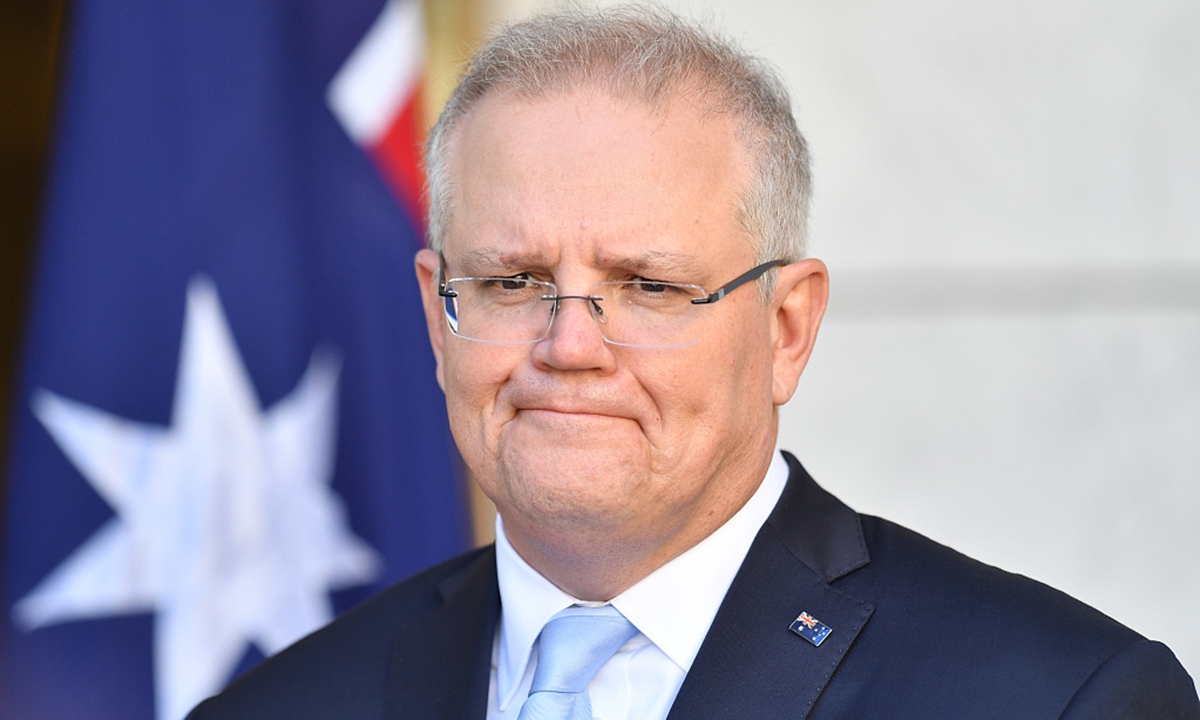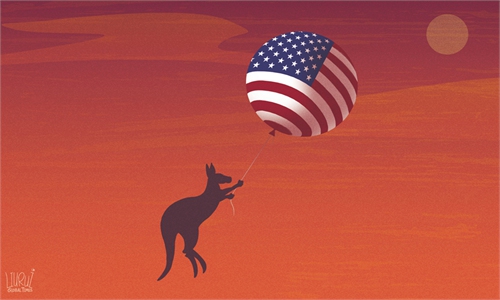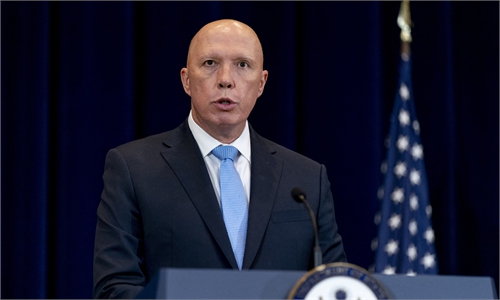Morrison tries to leverage Australia's influence in Indo-Pacific region with Cold War-style rhetoric

Australian Prime Minister Scott Morrison. Photo: VCG
Click here to stay tuned with our live updates on Ukraine tensions.Australian Prime Minister Scott Morrison on Monday virtually addressed the Australia-based Lowy Institute. Exploiting the recent military conflicts between Russia and Ukraine, he once again made some absurd warnings.
Morrison warned that a "new arc of autocracy" is forming to reshape the world. "We face the spectre of a transactional world, devoid of principle, accountability and transparency, where state sovereignty, territorial integrity and liberty are surrendered for respite from coercion and intimidation, or economic entrapment dressed up as economic reward," he said. "Australia faces its most difficult and dangerous security environment in 80 years."
Although Morrison is accustomed to uttering nonsense, his expression and wording this time is surprising. The West uses terms like "arc of instability," and "arc of terrorism." But the "arc of autocracy" seems to have been used for the first time. Such rhetoric means that Morrison wants to increase US' antagonism between "autocracy" and "democracy," hoping that values-based diplomacy will solidify the Western liberal democratic camp against China and Russia.
This is a Cold War-style speech. Morrison's lines sound like an "Iron Curtain" speech. Recently, Australia has been showing off, with its senior politicians repeatedly spouting headline-grabbing rhetoric. Amid the Ukraine crisis, Canberra is worried that the West, especially Washington, will put its strategic emphasis on NATO and reduce strategic investment in the Indo-Pacific region. Therefore, Australia is constantly underlining the threat from China, in a bid to draw the US' attention to Indo-Pacific region. Morrison's address on Monday is no exception, during which he mentioned China several times.
"Australia has long supported the status quo that has underpinned regional security and prosperity. That status quo is disturbed by China's military actions… There's no doubt that China has become more assertive, and is using its power in ways that are causing concern to nations across the region and beyond," he said.
The US' ability cannot match its ambition to deal with Russia and China at the same time. It needs help from its closest allies such as Australia and Japan. Australia particularly wants to stand out and play the role of an "acting sheriff" in the potential absence of the US in the Indo-Pacific region, in order to shape or even dominate the regional pattern and security order.
This is mainly because Australia inherited the strategic culture of the British Empire and has always wanted to establish a "sub-empire" in the region. Once its commonwealth was formed, Australia established its own colonies and mandated territory nearby, which can be interpreted as establishing a "sub-empire." After the withdrawal of the British Empire, Australia inherited this strategic culture and tradition.
Australia is now committed to building a favorable regional order in the Indo-Pacific. But it clearly does not have sufficient capability. Canberra is aware that if it wants to achieve a favorable regional order, it can only rely on the US to expand its power.
From the domestic perspective, Morrison's groundless slander on China serves the upcoming election. Morrison knows that in a turbulent time, voters want certainty and strong leadership to bring security and order. He hopes that playing up the threat from China can help him win more voters' support.
Morrison also hopes that promoting the "China threat" can intimidate China's neighboring countries. He will call on these countries to be on guard against China - an "autocratic" and powerful country. He hopes that these countries will rally around the US and Australia in various small multilateral circles. This will help build the Indo-Pacific framework in favor of Australia.
The Australian prime minister's exaggeration of the "China threat" and use of "spectre" and "arc of autocracy" support his announcement of the building of a nuclear submarine base. In his speech, Morrison announced that the Australian government has "decided to establish a Future Submarine Base on the east coast of Australia to support basing and disposition of the future nuclear-powered submarines."
The author is an adjunct researcher at the Center for Australian Studies, China University of Mining and Technology. opinion@globaltimes.com.cn


